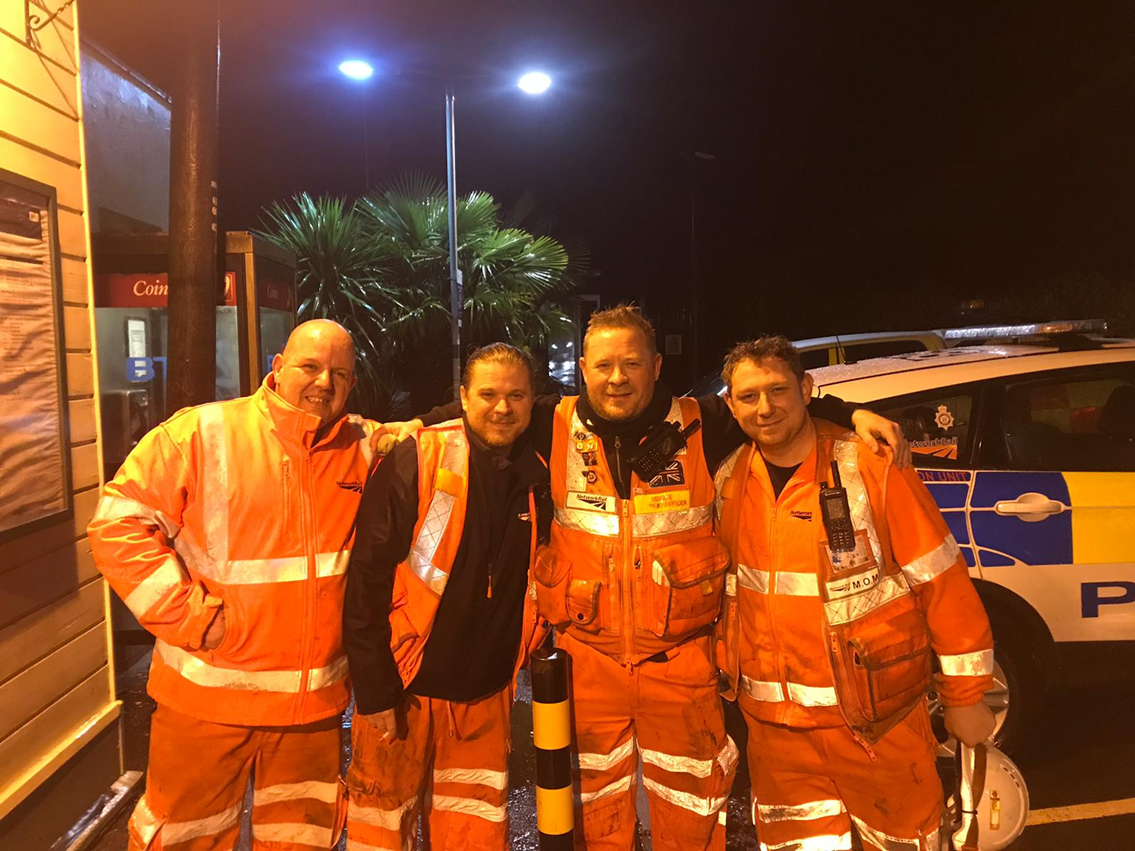Friday 7 Aug 2020
Network Rail’s Southern Region completes roll out of secure radio capability, as Wessex route goes live to improve its emergency and incident response
- Region & Route:
- Southern: Wessex
Network Rail Southern region has completed the rollout of a new digital secure radio system across its network, as Wessex route joins Sussex and Kent in introducing Airwave to its front-line responders, speeding up response times to improve train performance and improving links with the emergency services.
The system is already widely used by the emergency services and other public safety organisations throughout the UK.
Airwave is more reliable, secure and has better coverage than mobile phone networks. It provides a channel for control centres to communicate with all mobile responders across the route via handheld radios.
For day to day management of incidents - such as when there has been a bridge strike, flooding, a landslip or a points failure – those nearest to the incident can be quickly identified, which has vastly improved response times.
By using a radio channel to communicate rather than mobile telephone, shared awareness can be maintained which has both performance and safety advantages.
For large or major incidents – when the mobile phone network is often overwhelmed – the British Transport Police (BTP) can assign a shared channel with other organisations, including Network Rail, so that the response is fully co-ordinated.
Gunnar Lindahl, head of network operations delivery for Network Rail Wessex, said: “The new system enables us to respond to incidents more efficiently and allows us to provide a better service to our passengers.
“We can dispatch a responder within seconds so they arrive at the scene quickly and bring in other teams as required. This means that if an event has stopped services, we’re able to get trains running again more rapidly than before.”
Jon Ruch, senior programme manager, Network Rail Southern Region said: “The introduction of Airwave has helped us to see a significant improvement in our ability to respond and resolve incidents, benefitting passengers across the whole region.”
Sam Glaister, Network Rail Wessex local operations manager, said: “This system revolutionises the way we deal with operational incidents that affect the running of the railway.
“It allows us to bring in other teams to listen in to live incidents as they happen resulting in real time decision making and improvements to incident management, so the benefit should be better train performance.”
Airwave was introduced by the Joint Performance and Improvement Centre (JPIC), an initiative between Network Rail and South Western Railway, to look at ways to improve train punctuality.
Notes to Editors
- Wessex route covers rail services out of London Waterloo towards southwest London, Surrey, Hampshire, Wiltshire and Dorset.
- The system has been introduced in the Kent and Sussex routes in 2019 and will be introduced to the Eastern and Western routes
- A full one-day training course has been developed for all staff who will be expected to use the radios before they are rolled out. The course is delivered by an experienced ex emergency services trainer with extensive Airwave knowledge.
- The Airwave radios are supplied by Motorola
- An emergency button on the hand-held unit can be pressed if an individual was for any reason under attack, assaulted or had become injured significantly improving safety for lone workers and responders.
Contact information
Passengers / community members
Network Rail national helpline
03457 11 41 41
Latest travel advice
Please visit National Rail Enquiries
Journalists
Martin Spencer
Martin.Spencer2@networkrail.co.uk
About Network Rail
We own, operate and develop Britain's railway infrastructure; that's 20,000 miles of track, 30,000 bridges, tunnels and viaducts and the thousands of signals, level crossings and stations. We run 20 of the UK's largest stations while all the others, over 2,500, are run by the country's train operating companies.
Usually, there are almost five million journeys made in the UK and over 600 freight trains run on the network. People depend on Britain's railway for their daily commute, to visit friends and loved ones and to get them home safe every day. Our role is to deliver a safe and reliable railway, so we carefully manage and deliver thousands of projects every year that form part of the multi-billion pound Railway Upgrade Plan, to grow and expand the nation's railway network to respond to the tremendous growth and demand the railway has experienced - a doubling of passenger journeys over the past 20 years.
Follow us on Twitter: @networkrail
Visit our online newsroom: www.networkrailmediacentre.co.uk

